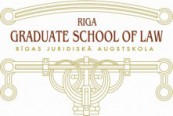Project “Promoting Mediation in Cross-Border Commercial Cases Based on Study of Attitudes”

|
On 25 September 2007 the European Parliament and the Council adopted Decision No 1149/2007/EC1 establishing the Specific Programme "Civil Justice" (hereinafter referred to as the JCIV Programme) as part of the General Programme "Fundamental Rights and Justice" aimed at strengthening the area of Freedom, Security and Justice over the period of 2007 – 2013. In response to the call for proposals JUST/2013/JCIV/AG, the Riga Graduate School of Law (RGSL) in cooperation with the consulting firm Dynamic University developed and submitted the project “Promoting mediation in cross-border commercial cases based on study of attitudes, approaches and anticipations”. The aim of the project (filed under priority 2.2.3. “Access to Justice”) was to conduct effective dissemination of information on the benefits of mediation in cross border commercial disputes, thus raising the businesses’ awareness about this path to justice. The uniqueness of the project lies in its strong emphasis on research into the current status quo, so that the envisaged dissemination of information is focused, multi-layered and geared towards long-lasting impact. The idea for the project stems from the appreciation of the fact that, considering the paradox of limited use of mediation in spite of its economic viability, there is a lack of understanding of the sociological, historical and comparative legal and linguistic factors that affect businesses’ decision making when choosing the means to solve commercial cross-border disputes. The focus of the project was information dissemination on the value of mediation and the effectiveness of this endeavour was to be maximised through two dimensions: 1) An in-depth research on access to justice in theory and in practice (the focus being mediation) will provide the basis for dissemination strategy and content. 2) The dissemination materials will be produced considering the needs of all stakeholders involved: businesses, legal practitioners, mediators, academics and policy makers. Businesses, legal practitioners and mediators will be targeted by seminars-workshops, a handbook on mediation, animated explanation videos and leaflets. Academics and policy makers, on the other hand, will be approached through an academic research paper that will enable and encourage these two groups to enhance access to justice for businesses at institutional level. The project, therefore, strives to fulfil the priority of the call through multiple levels of influence and by using a variety of tools.
|
3) The sustainability of the project’s impact will be insured by the availability and distribution of the academic research paper which will contain results from the study on access to justice in all 28 EU Member States (as of July 1 2013) and an in-depth study of theoretical and practical aspects of access to justice in 6 project partner countries. The paper will illustrate how access to justice in practice differs from this notion in theory and what can be learnt from this to improve the present situation. The methodology employed for the research will have the potential for being used to measure and improve other aspects of access to justice. The academic research part of the project will be headed by the University of Helsinki, specifically, the Institute of International Economic Law, which has a noteworthy experience in the field of access to justice. RGSL will utilise its 15 years of experience as one of the leading law teaching and research institutions in Latvia to produce the deliverables of the project. To disseminate these deliverables effectively the project has involved the Institute for European Mediation and Arbitration, which has strong competency in delivering seminars on mediation and the Association for International Arbitration, an associated partner with exposure to international network of mediators. All the other partners are leading institutions in their respective countries, namely, Ionian University, specifically, Research Committee in Greece, Thomas More Antwerp in Belgium, and Kolping University of Applied Sciences in Lithuania.
|




